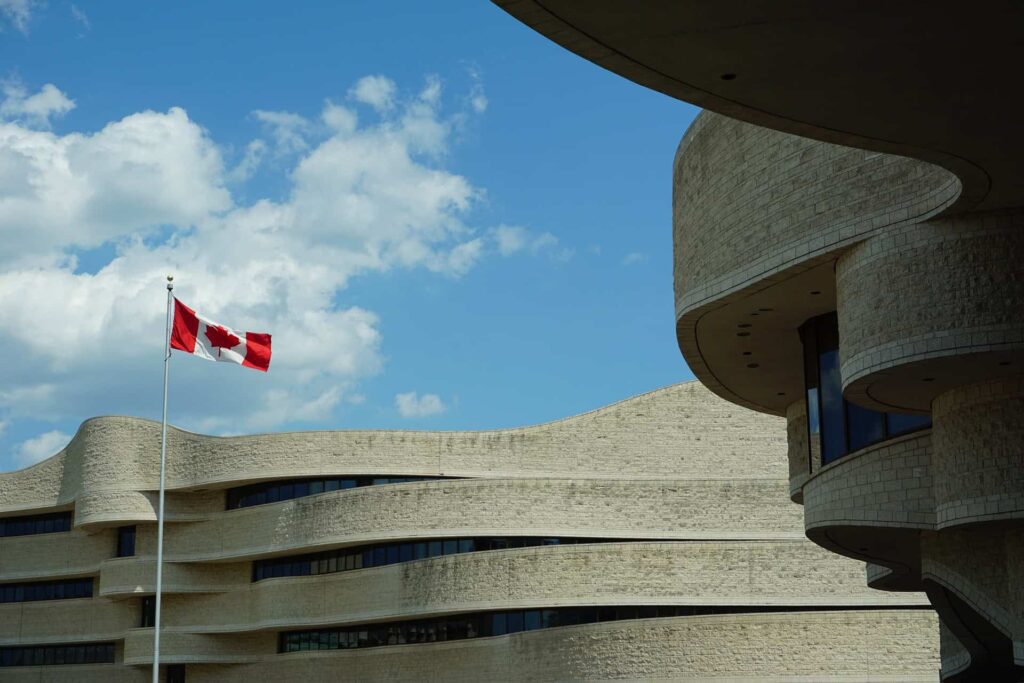- Immigration minister signals the government is open to looking at the study permit caps imposed last year – though she warns any changes will have to be seen as “sustainable” by the Canadian public.
- It follows sweeping job cuts at institutions across the country as budgets are further squeezed from an international student tuition fees shortfall.
- Canadian politicians wary as US tariffs imposed by Donald Trump’s administration bite.
Mark Carney’s Liberal government is planning consultations with the provinces, universities and individual students about the international student study cap, which has resulted in the loss of 8,260 jobs in post-secondary education since it was first introduced in January 2024.
Immigration, Refugees and Citizenship minister Lena Metlege Diab hinted in an interview with University Affairs that the cap could be adjusted, offering a glimmer of hope to the hard-hit sector. She said the federal government recognises that education is vital to the economic health of many regions.
“But Canadians want to ensure that we have a system that is sustainable,” she said.
A spokeswoman for the department, told a more cautious story to The PIE News. She said it is the responsibility of the provinces to ensure that colleges and universities are adequately funded.
In establishing the caps last year, Ottawa pointed to a shortage of housing that was being exacerbated by the high number of international students coming to Canada.
Ontario has been hardest hit by the cap, with the vast majority of the job losses occurring there. It has the lowest per student funding of the 10 provinces.
“Education is a provincial and territorial responsibility – as is the adequate funding of post-secondary institutions,” the spokeswoman said.
Prior to the implementation of the study permit cap, colleges and universities across the country counted on international student tuition revenues to meet their budget shortfalls.
Education is a provincial and territorial responsibility – as is the adequate funding of post-secondary institutions
Spokeswoman, IRCC
Higher education consultant Ken Steele is tracking the number of positions lost – and the news gets grimmer every month. In May, he reported that more than 5,000 jobs had been slashed. Now, that number is dramatically higher as institutions wrestle with financial challenges.
They include layoffs, cuts that have been announced but not implemented yet, and early retirements. Steele cautioned that these losses are only the ones that have been announced – there may be others that institutions have quietly carried out.
More than jobs are disappearing. Steele said the financial hit across the country is CAD$2.7 billion this year. Study opportunities have narrowed, with 583 programs being suspended at colleges and universities.
Some of the biggest cuts have been made at Ontario colleges. Centennial in Toronto has lost more than 750 positions, while Sheridan in Oakville has seen 656 jobs disappear.
British Columbia and Quebec have also been hit hard. In Montreal, 200 positions have been eliminated at Concordia University and 401 at McGill University.
“The federal government should declare ‘mission accomplished’ and ease the study permit cap to preserve employment,” Steele told The PIE.
“IRCC has surpassed its goals in reducing temporary foreign workers and international visa students and housing costs have already started to drop in major centres like Toronto,” he said.
The job losses come as Carney’s government is worried about the economic damage caused by US President Donald Trump’s imposition of tariffs.
There are fears that the Canadian economy is entering a recession, which would mean more unemployment. The jobless rate rose to 7% in May, the highest figure in almost a decade.
“As the federal government seeks to strengthen the economy and backstop major employers impacted by the tariffs, it should really consider how to support the higher education sector too,” Steele argued.
“The damage is being done by abrupt policy changes in Ottawa – not Washington,” he said.
The cap for this year is 437,000 permits. Ottawa has chopped the number of international students by 40 percent since announcing the restriction in January 2024.

